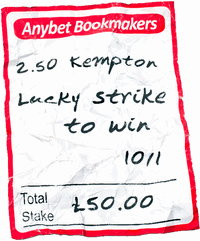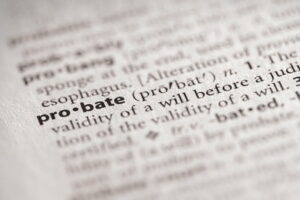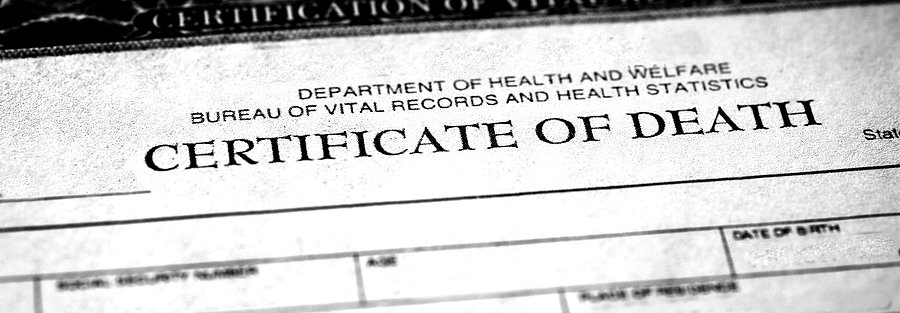![]() Betting and gambling is ingrained within society and the fact is, like it or hate it, tens of millions of people bet actively every year and it is a common occurrence when people die that they may have money or active bets in a betting account that you might want to claim as part of an estate.
Betting and gambling is ingrained within society and the fact is, like it or hate it, tens of millions of people bet actively every year and it is a common occurrence when people die that they may have money or active bets in a betting account that you might want to claim as part of an estate.
The rules around money held in an account are fairly straight forward. If someone passes away with funds in a bookmaker or casino account then these can be claimed as part of an estate by proving the person in question has died, with a death certificate, and that you have the power to claim those funds. Betting companies are not financial institutions so you cannot claim interest or anything like that, but the money itself belongs to the people inheriting an estate.
There are, however, grey areas to consider and one of these is what happens to unsettled bets at the time someone dies. Ante-post bets are placed on events in the future and it is common for people to die with wagers still outstanding. The rules here vary and depend on the terms of an individual betting company, some will honour bets whereas others will not but will return the stake. This partly depends on how far in the future a bet is and when the company were notified of a death.
On this page we address some of these issues to give you a better idea of what you can or cannot claim from someones betting account if they are no longer with us.
Ante-Post Bets Settle In The Future
 Sports betting is, for most people, a fun and entertaining way to spend their time. Of course, like anything else, there are different bet possibilities available for sporting events, and it’s necessary for you to know the difference between them. If you’re betting on a horse race, for example, on the same day, then it’s obviously known as a “day of race” bet – self-explanatory. By the end of the day the bet will have settled whether you’ve won or lost.
Sports betting is, for most people, a fun and entertaining way to spend their time. Of course, like anything else, there are different bet possibilities available for sporting events, and it’s necessary for you to know the difference between them. If you’re betting on a horse race, for example, on the same day, then it’s obviously known as a “day of race” bet – self-explanatory. By the end of the day the bet will have settled whether you’ve won or lost.
However, there is also something known as an ante-post bet, which relates to placing a bet on something that will occur in the future. Where horse racing is concerned, that could be three days down the line, three months ahead, six months ahead, etc. If a sportsbook is offering wagering on such events, then you’re free to place a bet on them, regardless of when they’re occurring. While horse racing is the most popular sport for ante-post bets they are also placed on outright results for football, tennis, golf, etc., pretty much any market offered in advance of an event.
Of course, the benefit of ante-post betting is that the rewards for making a winning wager are usually much better than those related to same day betting. However, there are also questions that have been raised relating to the status of a bet if the punter unfortunately dies before the event takes place. What happens to the bet if it turns out to be a winning one? Who gets to take possession of the money?
It ultimately comes down to the ‘contract’ between the bookie and the account holder. The default position is that placing the bet gives the deceased a contractual right that can be passed on in the will – so there is no automatic right to a refund but beneficiaries under the will / personal representatives can claim if it wins.
The terms of any given bookie can alter this by, for example, stating in the termination section that the contract is terminated by death. If there is a death related termination it should be activated automatically on death, regardless of when the bookie was notified. For example, if you die on Monday with a bet on a Tuesday race the contract should automatically be terminated on Monday so if it wins on Tuesday the beneficiary cannot claim winnings but will be refunded the stakes. If the contract is deemed terminated the terms should say whether or not it is obliged to return principal to the estate.
Whether it is better to receive winnings or the stake back is ultimately dependent on whether the bet wins or not and there is no perfect solution (e.g. you can’t claim the winning bets but expect stakes back on the losing wagers). If a contract says they do not have to return stakes or pay winnings then the consumer would probably have little recourse. You could take them to court and argue that term is struck out as unfair, but that’s not an argument you’d want to be relying on.
Unclaimed Winnings and Dormant Accounts
 There are different circumstances that could occur when it comes to a punter passing away and having ante-post bets placed. Naturally, it all depends upon their own life situation. For example, if someone is living without any family, then the scenario would be quite different to if someone had passed away who had children and/or other family members.
There are different circumstances that could occur when it comes to a punter passing away and having ante-post bets placed. Naturally, it all depends upon their own life situation. For example, if someone is living without any family, then the scenario would be quite different to if someone had passed away who had children and/or other family members.
In the case of an ante-post bet being a winning one after someone has passed away, the winnings would be credited to their sportsbook account as normal. If nobody had contacted the sportsbook to inform them that the account holder had died after so long, then the likelihood is that the bookie itself would notice the account inactivity and see that there are unclaimed funds in it. In most cases, the sportsbook would proceed with trying to contact the account holder in one way or another to inform them of their win and the dormancy of their betting account.
By doing so, the sportsbook stands a chance of reaching a family member via the phone number on the account or something similar. This would then provide an update on the situation surrounding the account holder.
What happens with the money from that point on? And what if the sportsbook isn’t able to speak with someone to confirm the status of the account holder?
Well, if ante-post bets have been placed and the bettor passes away before the event, then the bet remains active in most cases. Only if the sportsbook is informed prior to the event taking place, and they send in valid proof of this being the case, then something may be able to be done about it. However, if this doesn’t occur (potentially nobody knows that the punter places sports bets, so there’s no reason for them to contact the sportsbook), the bet goes ahead as standard.
Presenting Valid Documentation to Claim Winnings

If you are the wife, husband, child or close family member of the person who has passed away, then there’s also the potential for you to claim the winnings from a successful ante-post bet, too, along with any other money in the account. Obviously, you’ll need to contact the sportsbook where the bet was placed to inform them of the account holder’s death. From there, you’ll be informed of an address to send a letter regarding the punter and a copy of their death certificate will need to be seen as well.
Whichever person or people has/have the rights to the monetary funds of the person who has passed away can then make their claim for that money. This can naturally be done by yourself or directly through a solicitor. Winnings would then be transferred over to you, and this should be the policy at all top-branded, world-class sportsbooks. That policy should relate to both any winnings that the account has amassed since the passing of the client, as well as any funds that they deposited into the same account and that remain.
Without valid documentation though, these funds won’t be possible to claim. What happens in this instance, and in the circumstances where the sportsbook isn’t able to contact anyone regarding the inactive account?
What Happens To Unclaimed Winnings?
 Different online sportsbooks have different periods of time that they will wait before an account is deemed inactive and/or dormant. Some consider 180 days to be enough, while others wait 12 months. Within that time, if nobody has come forward in a bid to claim the winnings and deposited funds in a dead bettor’s account, a certain procedure must be followed.
Different online sportsbooks have different periods of time that they will wait before an account is deemed inactive and/or dormant. Some consider 180 days to be enough, while others wait 12 months. Within that time, if nobody has come forward in a bid to claim the winnings and deposited funds in a dead bettor’s account, a certain procedure must be followed.
Again, different jurisdictions will work with this differently to others, but the first step would be for the sportsbook to try and process a withdrawal back to the same account that the player deposited from. Of course, when someone has passed away, the likelihood is that their bank accounts and so on will have been closed down.
If, after 12 months, an account has not had its deposited funds and any subsequent winnings claimed, then an operator usually has the ability to reclassify such for internal accounting purposes. This is the case as long as there isn’t any sort of prejudice to an affected player’s rights over the funds. A reduction in the protection of those funds also shouldn’t occur. At the same time, an operator’s terms should clearly state this for all customers to see.
Essentially, sportsbooks are allowed to start charging dormant accounts a fee after so long – so, in the case of the UK gambling scene and according to the legislation from the Gambling Commission, this would be after 12 months. Again, this should be expressed properly in the sportsbook’s terms and conditions. That fee would take small portions of the money held within the account as a fee for keeping the account open. This way, if a player isn’t dead, they’re able to come back later and potentially log back in (where they would find a reduced balance in their account due to the aforementioned fees).
In the case of someone passing away and nobody contacting the sportsbook to claim the deposited funds and winnings, the funds would be soaked up by this process. Each time a fee is taken from the balance, this goes towards the sportsbook’s profitability instead.
Once the balance in that account reaches zero, it will be closed down and no longer deemed as dormant, but completely closed. This is something that is clearly stated on the Bet365 sportsbook, as point 5 in its terms and conditions. All sportsbooks licensed by the UK Gambling Commission should have similar inclusions for their members to read and understand.
Claiming Back Losing Bets
 When someone places a bet they are in effect entering into a contract. The contract is its most basic form is a transaction where you agree to risk an amount of money in return for a set payout if the scenario you are backing happens. From a legal perspective as long as the person betting was not impaired at the time they placed the wager then the contract is valid. Therefore, many bookies will allow bets to settle even after someone has died and will cancel any other bets in the future once informed and asked to close the account.
When someone places a bet they are in effect entering into a contract. The contract is its most basic form is a transaction where you agree to risk an amount of money in return for a set payout if the scenario you are backing happens. From a legal perspective as long as the person betting was not impaired at the time they placed the wager then the contract is valid. Therefore, many bookies will allow bets to settle even after someone has died and will cancel any other bets in the future once informed and asked to close the account.
If you notify a company before any bets have settled on future events they can (but are not obliged to) void these bets and return the stakes to the account which can then be withdrawn through the processes discussed earlier. What if though you only inform a betting company weeks later after which time many of the bets have lost, for example. Can you claim the stakes back on these bets retrospectively?
The short answer is no, often even if you can prove you told the operator about the death prior to the event starting. A bet, if lawful under the Gambling Act, is enforceable and should be recoverable by or against the parties to it. Death of an individual who is a party to a contract will frustrate that contract if it makes it incapable of performance. Provision of a service would be one example. However, a bet on a future race, where the punter has no part in the outcome of the contract (the result of the race or event), probably wouldn’t fall within that. An unpaid debt would be recoverable from the estate of the deceased, theoretically, i.e. they don’t have to refund losing stakes even if that person died before the event took place.
Other Considerations
Spread Betting
With fixed odds betting the lines are clear, bets are placed and they either win or lose or are voided, you cannot lose more money than you have staked. This is not the case for all types of betting and one example is spread betting. Spread betting is interesting because you take a position on a market (e.g. number of goals in a game) and the closer your prediction is to the outcome the more you can win but conversely the further away your prediction is the more you can lose.
This is important as with spread betting you can lose more money than you have deposited in an account, which effectively can leave you with unpaid debt. Spread betting is actually regulated by the FCA and not the UK Gambling Commission and as such is classed as a form of trading.
If someone dies before a market goes live you can ask the company to void these bets and return the stakes. If the event has already gone live and the person loses leaving a liability then this is now classed as unsettled debt and can be claimed from the estate of the person who passed away.
In reality many companies are compassionate in these situations and may wipe any outstanding debt, but they are not legally obliged to.
Physical Bets In Shops & Casinos
Of course not everyone bets online and generally those that use shops to bet tend to be older people, who naturally are more likely to die. The rules here are very similar but in this case you will need to have the bet slips in order to claim any winnings or void a bet that has not yet started.
You will be unlikely to claim a refund or winnings in a shop, instead you will need to send these slips away with the death certificate and ask for a payout/refund through this route. Should you not be able to get access to the bet slips but you can prove the bet was placed, perhaps with a photo of the bet slip, then this is sufficient to claim. The main thing the bookie will need is the transaction ID from the bet slip, without this they will not pay out.
The same is true for a casino, if you discover someone has died and they have a load of chips or a credit note from a casino you can also claim these funds back as part of an estate.
Inheritance Tax On Gambling Winnings?
Gambling winnings are not subject to tax in the UK, tax is paid by the operator directly in the form of a point of consumption tax. Winnings from gambling are not counted as income and so there is no income tax or national insurance to pay on them.
If someone dies, however, then the money from their betting account will be counted as part of the estate, irrespective as to how that money was earned. Therefore, gambling winnings will be subject to inheritance tax if the size of the estate is over the threshold value.
Finding Betting Accounts Of The Deceased
The nature of gambling means that people are not always open and honest about the betting companies they have accounts with. This can make tracking down unclaimed funds rather difficult if the deceased has not left any details of these accounts.
Short of contacting every licensed bookie to ask them if a deceased person had an account it is difficult to track them down. Within that GDPR rules mean they will not simply tell you whether a person had an account or not and you would need to send proof to every single one of them in order to get this information.
The best thing to do is to monitor the email accounts of the deceased (if you have access) as companies will contact their members if their accounts become inactive. Brands also send out a lot of promotional emails and so looking for these emails is a good clue they may have an account with that operator.
If you have betting accounts yourself it is recommended you include details of these in any will to ensure relatives can claim these as part of an estate.
Diminished Responsibility and Power of Attorney
Often people may need to claim money from a gambling account even if that person has not died. The most obvious case would be someone with dementia (or similar) where they are classed as having diminished responsibility. In many cases like this there will be someone with power of attorney for the person in question and they can claim any money from a betting account legally.
If the account holder has lost money and you can prove they had diminished responsibility when they placed these bets you can also claim back loses, although this is a more lengthy procedure that would possibly require a solicitor.
A person with dementia will almost certainly have lost legal capacity, especially if there is a power of attorney in force. In that case ANY contract that they enter in which the other party is aware of their lack of capacity, is voidable by the person lacking capacity and that will include bets. An Attorney under a Power would not have power to enter into such a contract for the donor of the power (the dementia patient).
If the betting company did not have knowledge of the lack of capacity then it will not be recoverable from them. The lack of capacity does render the contract voidable, but not void.
Underage Beneficiaries
It is illegal to gamble under the age of 18 but that doesn’t mean you can’t inherit gambling winnings if you are under the age of 18. The act of placing a bet is what is restricted in gambling law and so claiming winnings from bets placed by an adult prior to death is not illegal.
Any money in a betting account is classed as cash and therefore can be included as such in an estate, no matter who inherits that estate.
Conclusion
 To put it bluntly, if someone has placed an ante-post bet and passes away prior to it taking place, the bet goes ahead as normal. Should it be a winning one, the funds are added to the bettor’s account balance and, if someone steps forward to claim it as a family member and they can prove the death of the account holder, they should also be able to withdraw the funds.
To put it bluntly, if someone has placed an ante-post bet and passes away prior to it taking place, the bet goes ahead as normal. Should it be a winning one, the funds are added to the bettor’s account balance and, if someone steps forward to claim it as a family member and they can prove the death of the account holder, they should also be able to withdraw the funds.
Should this not be the case, and nobody comes forward to claim the winnings and deposited funds, the punter’s account is deemed as inactive and an administration fee is taken every month. This continues until the account balance reaches zero, whereby the account will be fully closed, or someone comes forward to claim the remaining balance with proof of the holder’s death, as stated before.
If you inform a company of the death of the account holder before a bet goes live you can ask for those bets to be cancelled and the stakes to be returned, but the company may or may not do that depending on their own terms and conditions.